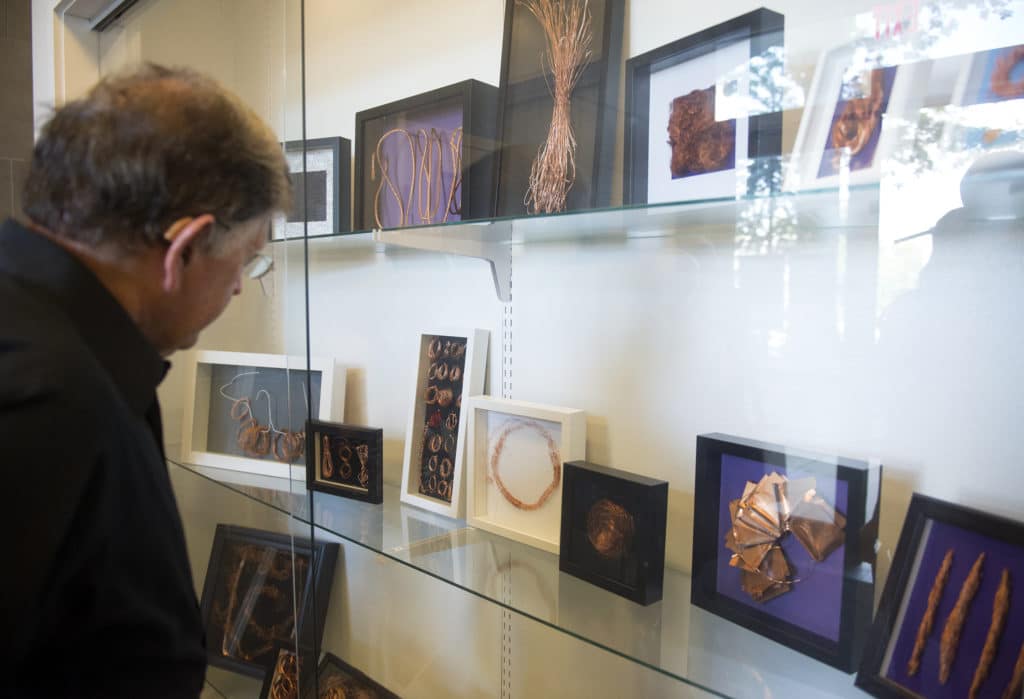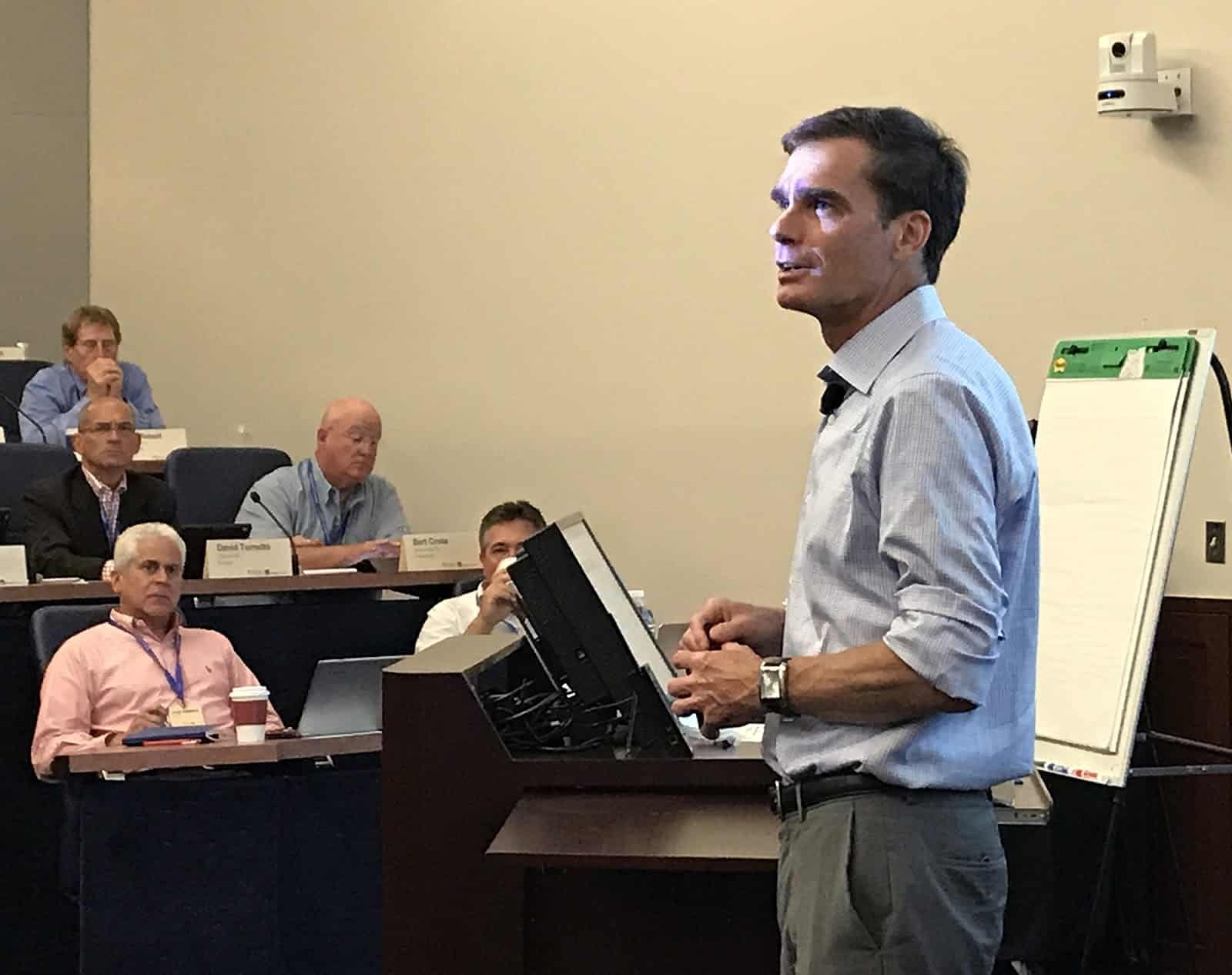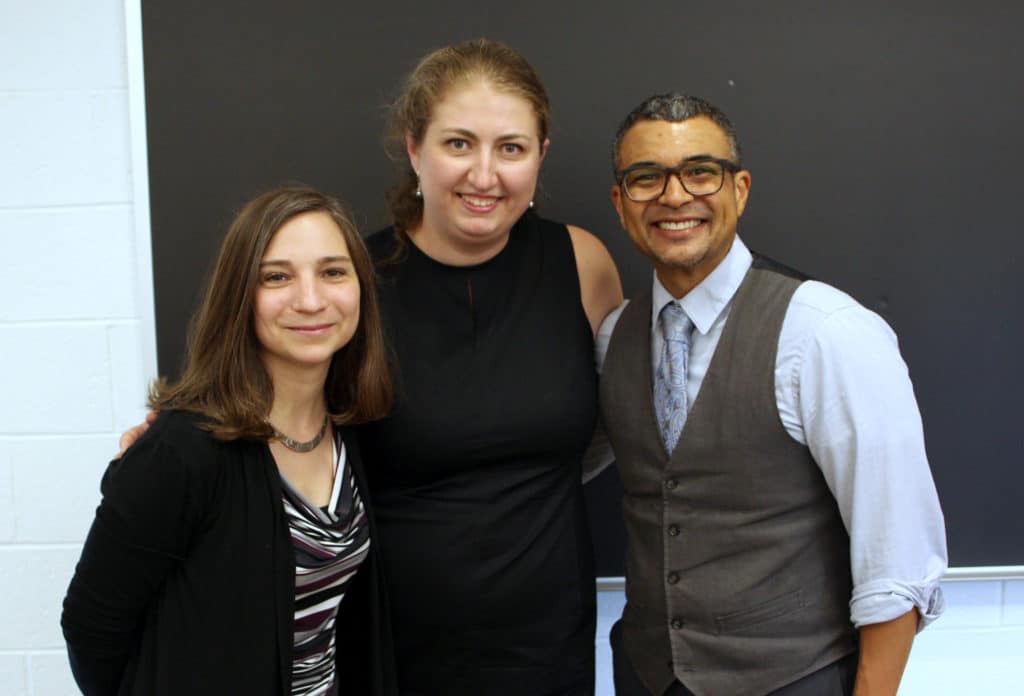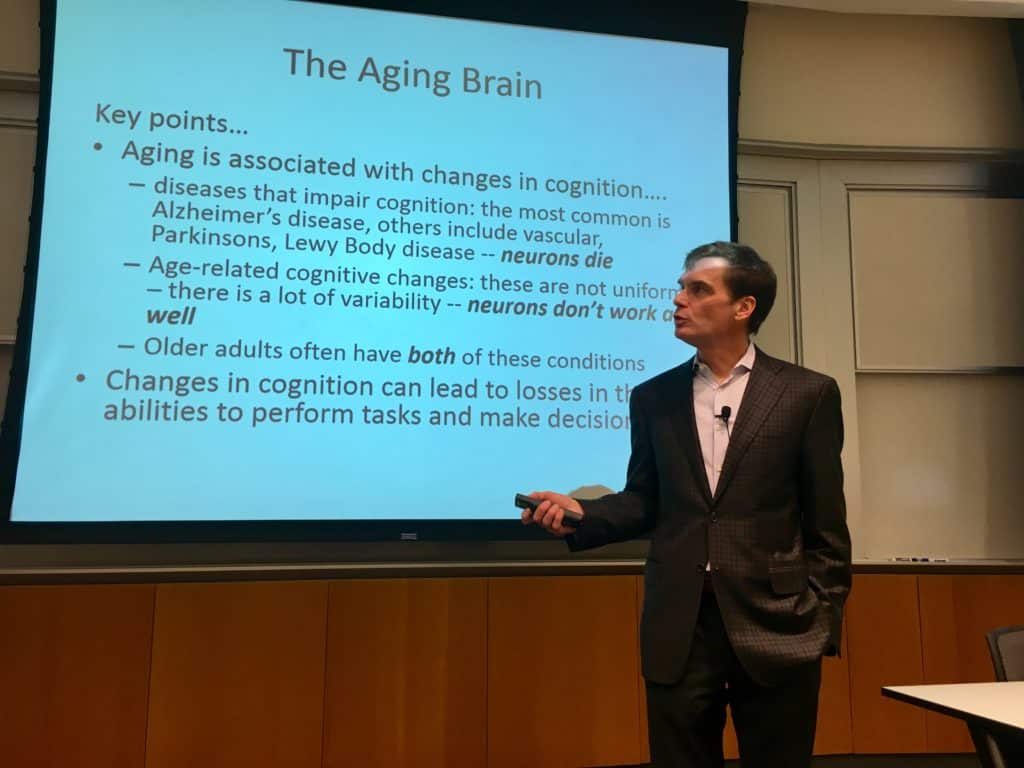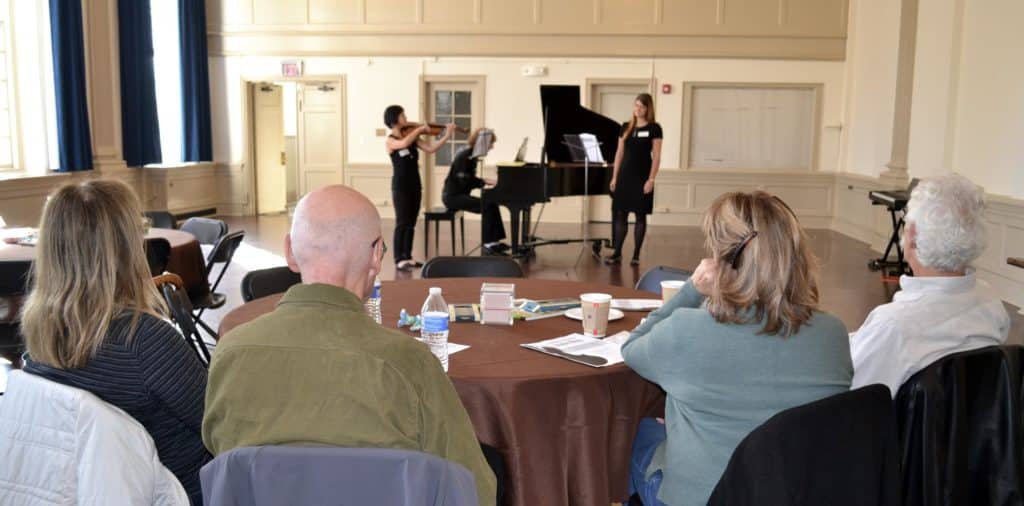The copper-art exhibit “Carl Duzen: Copper // Denying Dementia Its Due,” was given a warm welcome by around 100 people during a reception Wednesday night at the Main Line Art Center. Carl Duzen, 80, a Penn Memory Center patient who was diagnosed with Alzheimer’s disease in 2014, was joined by wife Susan Jewett, 70, to greet attendees and talk about their co-created art.
Latest News
Seniors driving dangerously a ‘public health issue’
By Chloe Elmer
No one wants to be the “bad guy” when it comes to telling older adults what they should or should not be doing at their age.
Family members and caregivers for elderly persons are usually the first to notice signs of their loved ones losing their ability to drive; however, they often don’t want to be the one ultimately responsible for taking the keys.
In a recent Philadelphia Inquirer article on the topic, Penn Memory Center Co-Director Dr. Jason Karlawish calls the issue of seniors driving dangerously a “public health issue.”
At Wharton, Karlawish promotes need for ‘whealthcare’
Speaking at the Wharton School of Business AXA graduate summit, PMC Co-Director Dr. Jason Karlawish told an audience of banking and financial service industry professionals that they were on the “front lines” when it comes to detecting cognitive impairment.
Karlawish spoke of whealthcare, where health and wealth meet, and how one of the first things that people who are impaired lose is the ability to manage money. He added that banking and financial service industries are often on the front lines of screening and detection for impairment, and those involved in the industry should be aware of how to handle certain situations.
Study: Alzheimer’s diagnosis can lower quality of life
By Queen Muse
For many years, a diagnosis of Alzheimer’s disease was often not given until signs of serious memory and cognitive problems were apparent. Today, patients can be diagnosed earlier in the disease process as with Mild Cognitive Impairment or mild stage Alzheimer’s disease dementia. In the future, routine diagnosis of Alzheimer’s disease will likely rely on gene and biomarker testing and occur before symptoms even begin.
Early diagnosis brings opportunities to prevent cognitive and functional losses and to plan for these losses, but a diagnosis of Alzheimer’s disease can also bring challenges.
Wolk, Karlawish discuss biomarker use in AAIC talks
Penn Memory Center Co-Directors Jason Karlawish, MD, and David Wolk, MD, each addressed the role of biomarkers in Alzheimer’s research during this year’s Alzheimer’s Association International Conference (AAIC) in London.
The annual conference brings together 5,000 researchers to network and discuss their research, findings, and theories in relation to Alzheimer’s disease, dementia, and other types of cognitive impairment.
Finding beauty in what remains
Editor’s Note: PMC patient Carl Duzen has developed a unique hobby since being diagnosed with Alzheimer’s disease. He and his wife, Susan Jewett, have turned the hobby into a gallery exhibition entitled, “Carl Duzen: Copper // Denying Dementia Its Due,” now open through August 29 at the Main Line Art Center in Haverford. A reception will be held Wednesday, August 9 from 5:30 p.m. to 7:30 p.m., and is open to the public.
By Chloe Elmer
On a rainy Tuesday, Carl Duzen pulls open the garage door to his Havertown home as his wife, Susan Jewett, watches from the dry kitchen.
He goes inside, dives into his toolbox — “he loves his tools,” Susan says — and finds a screwdriver. An old clunker of a television is positioned under the garage’s main light, and Carl starts unscrewing, pulling off the back and exposing the ‘tube.’
The TV, one of those old cathode ray tube sets, was long ago considered obsolete by a neighbor, but Carl sees something valuable, beautiful in the discarded piece of old technology.
A scientist by training, Carl has taken to alchemy in the last two years, turning what others call junk into works of art.
Petrovsky defends dissertation on relationship of music, MCI
Darina Petrovsky, a former doctoral student in the University of Pennsylvania School of Nursing, has successfully defended her dissertation.
“The Relationship of Musical Abilities with Cognition and Neurodegenerative Pathology in Older Adults with Mild Cognitive Impairment” (Dissertation Chair: Dr. Pamela Cacchione, PhD, CRNP, BC, FAAN) addresses whether music may help older adult with cognitive impairment improve their well-being and cognition.
Karlawish: ‘We’re not going to drug our way out’ of Alzheimer’s disease
Following several failed trials, what is the way forward in Alzheimer’s disease? Learning from mistakes and focusing on prevention, answers Jason Karlawish, MD, professor of medicine, medical ethics and health policy, and neurology at the University of Pennsylvania Perelman School of Medicine and co-director of the Penn Memory Center, in this exclusive MedPage Today video.
“Prevention is a tall order. If taken literally, it means you take a treatment before you have any signs or symptoms of the disease and the treatment prevents you from ever developing those signs and symptoms,” said Karlawish. “Will we achieve that by 2025 in Alzheimer’s? I think it’s unlikely.”
Memory Café on summer break, will return September 1
Memory Café is taking a summer vacation.
The monthly pop-up café for the Penn Memory Center community will return 10:30 a.m. to noon on Friday, September 1, at Christ Church Neighborhood House in Old City. There will be no café in August.
This program is exclusively for people with memory problems, including Alzheimer’s disease, and their partners/families.
Karlawish challenges corporations to allow employee participation in Alzheimer’s research
By Chloe Elmer
The top goal of the nation’s Alzheimer’s plan is to prevent and effectively treat Alzheimer’s disease by 2025. For that to happen, the nation’s corporate leaders will need to help.
Penn Memory Center Co-Director Dr. Jason Karlawish and Joshua Grill, an associate professor University of California, Irvine, called on corporate America in a recent Fobes column to make policy changes.
At PMC and across the nation, most Alzheimer’s research requires a study partner, who plays a key role both in clinic visits and at home. And though most caregivers are adult children, study partners tend to be the spouses of participants. Often, these caregivers who are not study partners are adult children who are in the midst of their careers, saving money for their own futures, and cannot afford to take the necessary time off to participate in research.
Employers dedicated to finding effective treatments for Alzheimer’s disease should offer paid time off for their employees participating in Alzheimer’s research with a family member, Karlawish and Grill write. The authors specifically call on members of the Global CEO Initiative on Alzheimer’s Disease, including Bank of America, AARP, Pfizer, GE and United Healthcare, among others, to “lead the charge in this important initiative.” They also outline ways in which researchers, policymakers, and study sponsors can step up.
Read the whole column here.
- « Previous Page
- 1
- …
- 57
- 58
- 59
- 60
- 61
- …
- 91
- Next Page »
